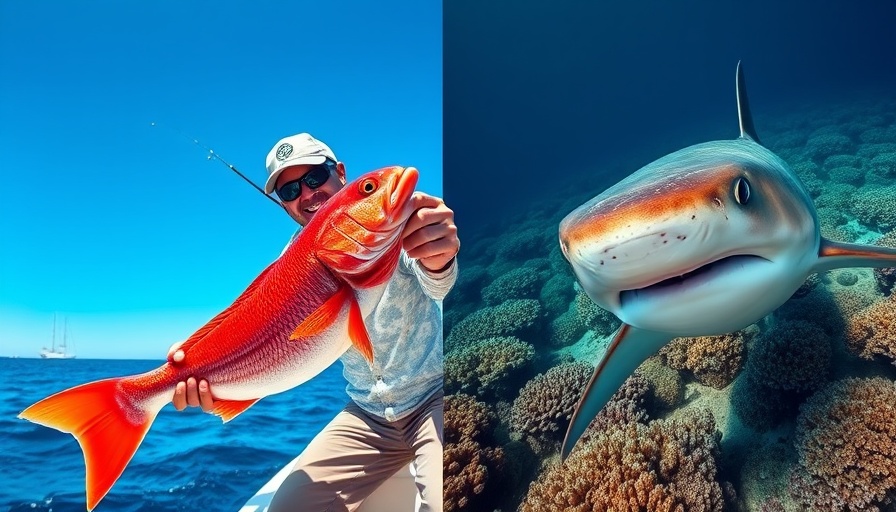
Shark Resurgence: A Challenge for Florida's Fishing Landscape
The sunlit shores of Destin, Florida, a popular destination for beachgoers and anglers alike, are becoming increasingly dominated by a concerning presence—sharks. As charter captain John Pouncey reveals, these apex predators are not only changing the dynamics of fishing but threatening the livelihoods of local fishermen and the tourism industry that thrives on it. Pouncey's experiences illustrate a growing issue of shark depredation, where these powerful predators are snatching fish right from the lines of unsuspecting anglers.
The Impact of Shark Depredation on Local Fishermen
Shark depredation significantly affects charter fishing businesses. Pouncey notes, “It’s a huge negative effect on the guys that fish for 100, 150, 200 days out of the year.” Clients from around the world come to Destin with hopes of catching sought-after species like red snapper and grouper. However, many leave empty-handed, and this can deter them from returning. The process of waiting for a catch becomes even more frustrating when sharks arrive in droves, devastating what could have been a successful fishing trip.
The Ripple Effect on Florida's Tourism Industry
With fishing being such a significant part of Florida’s tourism, the resurgence of sharks poses broader economic risks. Pouncey points out that when clients return home with disappointing stories instead of trophies, it negatively impacts the perception of the charter fishing experience in Destin. This situation raises concerns about how the fishing industry might endure long-term, especially as tourists continuously seek their next adventure.
Understanding Shark Movements: A Scientific Perspective
Dr. Gavin Naylor, the director of the Florida Program for Shark Research at the University of Florida, highlights that the global number of sharks is actually low. Overfishing has driven them farther into recreational fishing areas, complicating their search for prey. As human activities strip the oceans of fish, sharks are forced to venture closer to shore, exacerbating encounters with fishermen. Understanding these dynamics is crucial for addressing the concerns raised by the fishing community.
Future Considerations: Finding a Balance
To navigate the difficulties that shark sightings present, local fishermen and researchers are advocating for a balanced approach. Establishing conservation efforts alongside fishing regulations may help manage shark populations while allowing the fishing community to thrive. There’s an urgent need to understand the interplay between marine ecosystems and local economies, ensuring that both advances in shark conservation and fishing can coexist.
Community Reflections: Emotional Connections to Fishing
Fishing is more than just a profession for many in Destin; it represents a lifestyle interwoven with family traditions and community bonds. Captains like Pouncey illustrate the emotional toll of witnessing hard work go unrewarded due to factors beyond their control. It’s a storyline familiar to many in the fishing community, shaping their identities and driving their passions.
Taking Action: Preservation and Our Oceans
As the locals navigate the challenges posed by sharks, there's a crucial message for those venturing into coastal waters. Whether vacationers or seasoned fishermen, understanding the role of sharks in our ecosystems is key to preserving the beauty of Florida's coastlines. Educating ourselves about marine life and its significance can enhance appreciation and promote responsible fishing practices, ultimately benefiting all ocean users.
 Add Row
Add Row  Add
Add 




Write A Comment